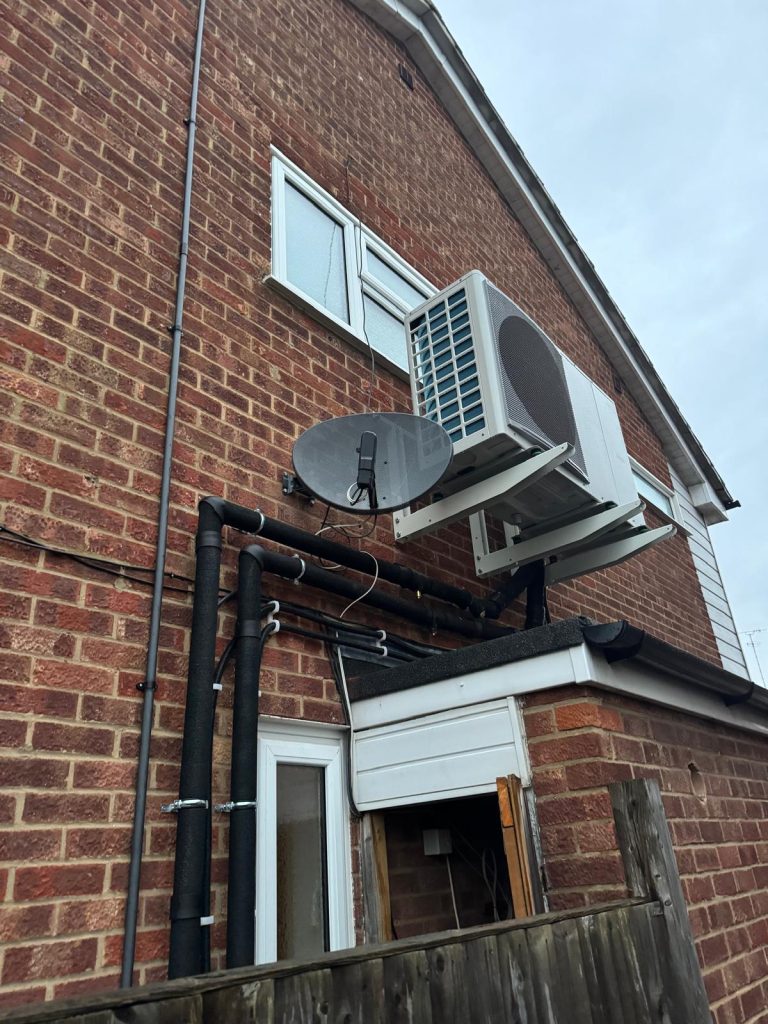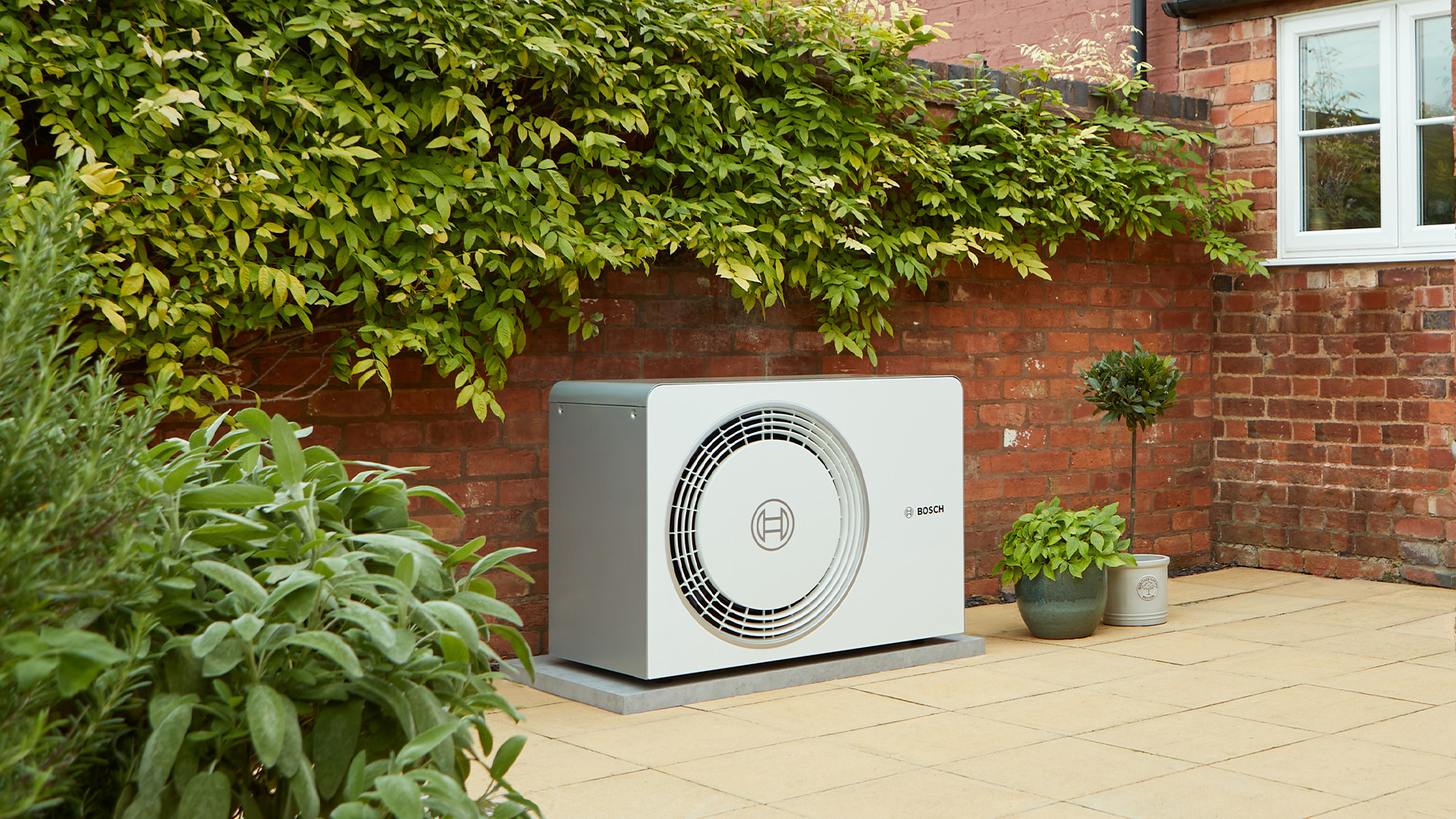As more homeowners seek sustainable heating solutions, heat pumps have emerged as one of the top choices for reducing carbon emissions and energy bills. But how much do heat pumps actually cost, and is the investment worth it in the long run? Whether you’re considering an Air Source Heat Pump (ASHP) or a Ground Source Heat Pump (GSHP), understanding the costs involved can help you make an informed decision.
Air Source Heat Pumps Costs:
The initial cost for Air Source Heat Pumps are generally lower than that of a ground source system, making it a more accessible option for many homeowners. The average cost for an ASHP installation ranges from £7,000 to £11,000, depending on the size of the system and the complexity of the installation.
Factors Affecting Heat Pumps (ASHP) Costs:
- System size: The bigger your home, the larger the heat pump needed to meet your heating and hot water requirements. Larger systems are naturally more expensive.
- Type of ASHP: There are two main types of ASHPs—air-to-water and air-to-air. Air-to-water systems tend to be more expensive as they are used to heat both your home and water.
- Installation complexity: Some properties may require additional changes, such as upgrading radiators or adding underfloor heating, which can increase overall installation costs.
- Efficiency ratings: Higher-efficiency models may have a higher upfront cost but will likely result in better long-term savings.
Before installation, we always recommend a proper heat loss survey to determine the most suitable system for your property.

Upfront Costs: Ground Source Heat Pumps Costs
A Ground Source Heat Pump tends to have a higher installation cost due to the need for extensive groundworks. On average, GSHP installation can cost anywhere from £13,000 to £35,000, depending on whether horizontal or vertical ground loops are required.
Factors Affecting Heat Pumps (GSHP) Costs:
- Ground loop type: The biggest cost factor for GSHPs is the ground loop installation. Horizontal loops involve digging trenches, which can be more affordable, but require a large amount of land. Vertical loops involve drilling deep boreholes, which can increase the price substantially but are ideal for homes with limited space.
- Land space: Larger properties with more land are better suited for horizontal loops, which are less expensive to install than vertical systems.
- Ground conditions: If your land is rocky or difficult to excavate, the installation costs can rise significantly.
- System size: Like ASHPs, the size of the GSHP system depends on your home’s heating and hot water needs. Larger homes with higher energy demands will need bigger and more expensive systems.
Running Costs
Once installed, both Air Source and Ground Source Heat Pumps offer impressive energy savings, though running costs will vary depending on factors like property insulation, system efficiency, and your typical energy usage.
Air Source Heat Pump Running Costs:
An ASHP typically requires electricity to operate, but for every unit of electricity consumed, it can produce 2.5 to 3.5 units of heat. This makes ASHPs highly efficient compared to traditional boiler installations.
On average, you can expect to pay around £500 to £1,500 per year for heating and hot water, depending on your system’s size and efficiency, along with your home’s insulation levels.
Ground Source Heat Pump Running Costs:
Ground Source Heat Pumps are more efficient than ASHPs, often producing 3.5 to 4 units of heat for every unit of electricity consumed. This means that GSHPs have even lower running costs in the long term, potentially saving you more on your energy bills.
Depending on the size of the system and the level of insulation in your home, GSHP running costs typically range from £400 to £1,000 per year.
Maintenance Costs
Both ASHPs and GSHPs require minimal maintenance compared to traditional gas boilers. It’s recommended to have your heat pump serviced annually to ensure that it operates efficiently and safely.
- ASHP maintenance: Expect to pay between £100 to £200 annually for a service.
- GSHP maintenance: Similar to ASHPs, GSHPs will require an annual service, typically costing around £150 to £300.
Regular boiler services and maintenance are essential for any heating system, and heat pumps are no exception, though they typically require less attention than traditional systems.
While GSHPs may require more attention to the ground loops in the long term, both systems are known for their durability, with life expectancies of 20 to 25 years for the heat pump unit itself and over 50 years for the underground piping.
Long-Term Savings
Both heat pump types offer significant savings on energy bills, especially when replacing inefficient heating systems. The more insulated your home, the more efficient the heat pump will be, resulting in lower energy consumption and bigger savings.
Government Incentives:
The UK government offers financial support for renewable energy systems, including heat pumps, through schemes like the Boiler Upgrade Scheme (BUS). Homeowners could receive grants of up to £5,000 for an ASHP and up to £6,000 for a GSHP, significantly reducing the upfront cost of installation.
It’s worth checking eligibility and applying for these incentives, as they can make the transition to a heat pump much more affordable. You can use our finance calculator to understand how these incentives can impact your overall investment.
Which Heat Pump Is Right for You?
When deciding between an Air Source Heat Pump and a Ground Source Heat Pump, the upfront cost is often a key deciding factor. ASHPs are typically more affordable to install and are a great option for properties with limited outdoor space. They are also easier to install and maintain, making them a popular choice for many homeowners.
However, if you have the land available and are looking for the most efficient system in the long run, a GSHP may be worth the higher installation costs. The long-term energy savings, combined with a longer lifespan and greater efficiency, make GSHPs an attractive option for those seeking maximum efficiency.
Regardless of the system you choose, switching to a heat pump is a great way to reduce your energy bills, lower your carbon footprint, and future-proof your home’s heating system.
For expert advice on which heat pump is right for your home, we’re here to help. Contact us today or request an estimate to learn more about heat pump installation and start saving on your energy bills!


No responses yet